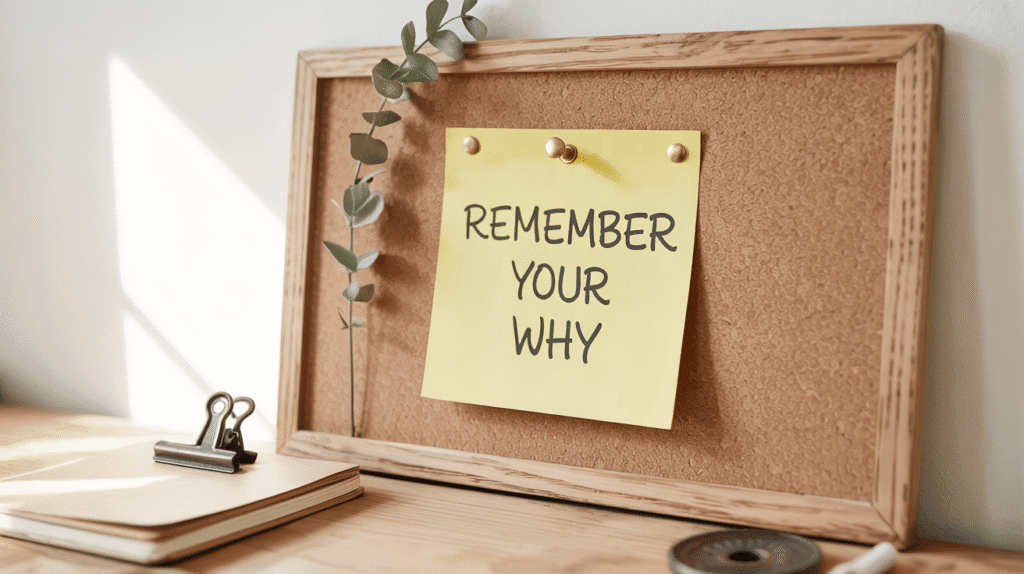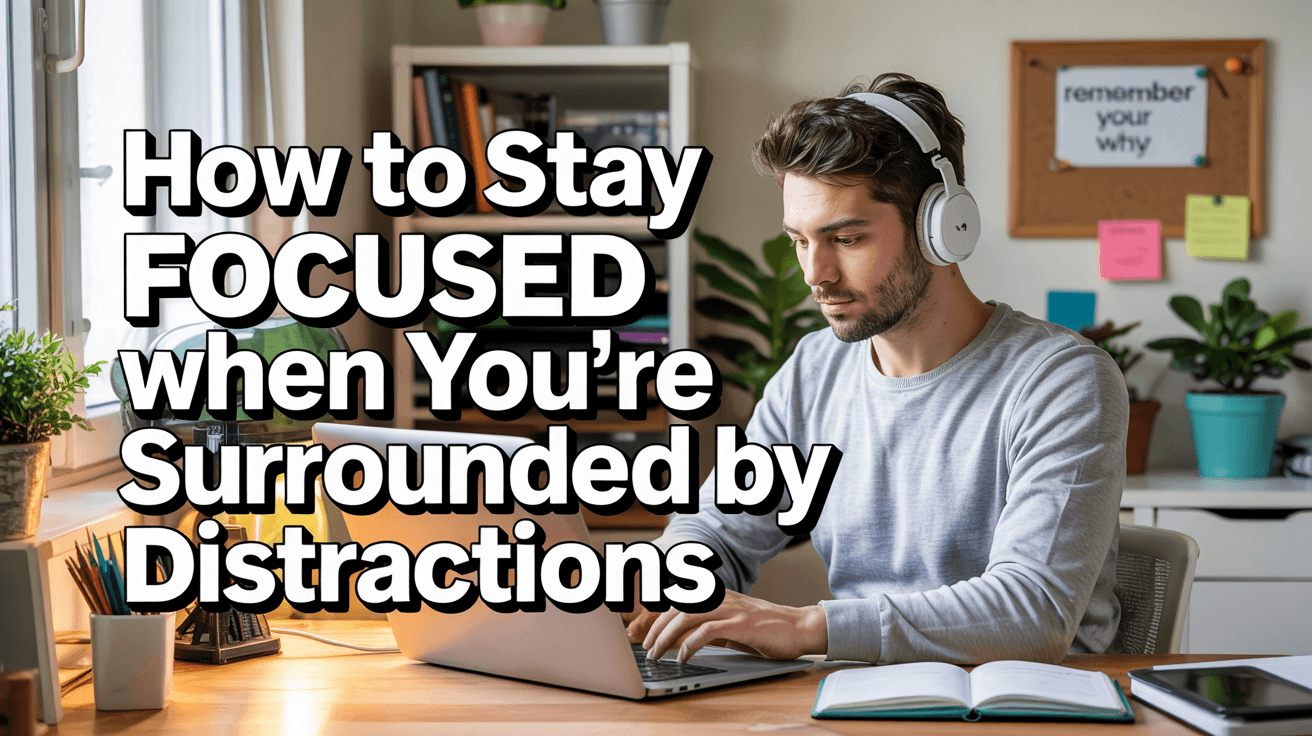In a world of pings, pop-ups, noise, and multitasking, staying focused can feel impossible. Whether you’re working from home, studying in a loud environment, or just dealing with mental overload, your attention is under constant attack.
But the good news? Focus is a skill. And like any skill, it can be trained and protected—even in the middle of chaos.
Here’s how.
🧱 Step 1: Start by Controlling Your Environment
You can’t control everything—but you can optimize your space to reduce distractions.
- Clear clutter from your workspace
- Use headphones with white noise or instrumental music
- Turn off overhead lights and use a desk lamp for a calming vibe
Your brain responds to your surroundings. The fewer stimuli, the more space for focus.

📵 Step 2: Silence the Noise (Literally and Digitally)
Your phone is probably the #1 enemy of deep work.
- Put it on airplane mode or leave it in another room
- Turn off non-essential notifications
- Close unused browser tabs
- Use site blockers like Freedom, StayFocusd, or Forest
Distractions steal minutes, and those minutes turn into hours.
🧠 Step 3: Use Time Blocks to Focus on One Thing
Multitasking is a myth. The real productivity hack is single-tasking with intention.
Try this:
- Set a timer for 25–45 minutes
- Choose one task and give it your full attention
- Take a 5-minute break before the next block
This is the Pomodoro Technique, and it works because it trains your mind to focus in short bursts—without burnout.

🔄 Step 4: Don’t Fight Distractions — Redirect Them
Trying to ignore distractions often makes them stronger. Instead, acknowledge and redirect.
Keep a “distraction journal” nearby. When a random thought pops in—write it down and return to your task. This small habit trains your brain to release the thought instead of resisting it.
Over time, you’ll feel less mentally scattered—and more in control.
🎯 Step 5: Focus on the Outcome, Not Just the Task
When your energy drops or your attention fades, reconnect with your why.
- Why are you doing this task?
- What goal does it support?
- What will finishing it help you avoid?
Keeping your purpose visible—even with a sticky note or quote—can remind you what’s at stake. And motivation sharpens focus.

Distractions aren’t going anywhere—but your ability to handle them can get better every day.
By adjusting your environment, setting clear focus blocks, silencing what doesn’t serve you, and anchoring to your deeper goals, you can train your brain to stay present—even when the world is loud.
You don’t need perfect silence to do great work.
Just intentional focus, one block at a time.

Daniel Carter believes that small daily changes lead to extraordinary results. Through simple and effective strategies, he inspires readers to take control of their routines, overcome procrastination, and unlock their full potential.











